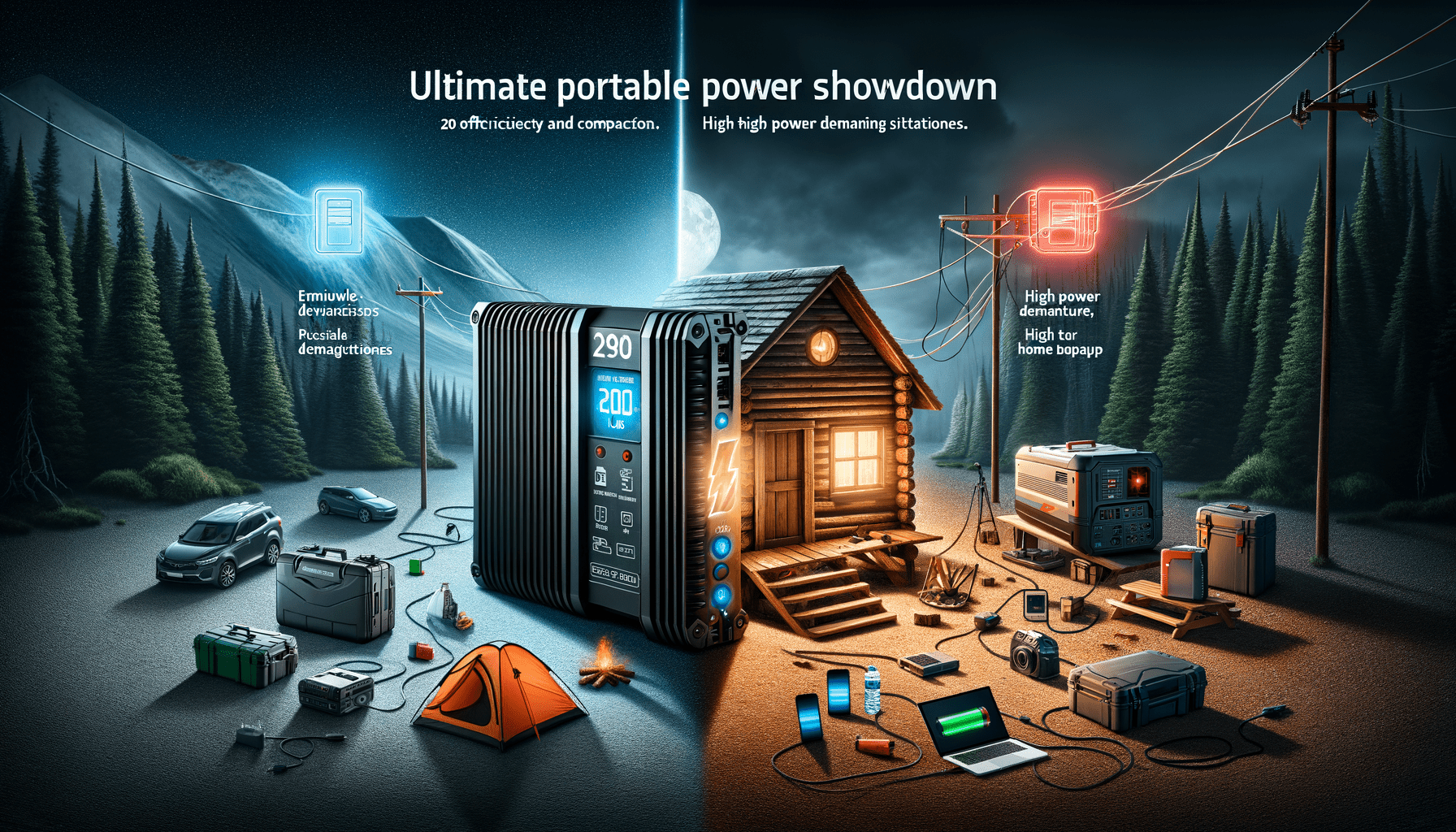Looking for a reliable portable power station can be a daunting task with so many options on the market. Today, we’re going to make your decision a little easier by comparing two of the most popular models: the Bluetti EB55 and the EcoFlow Delta. Whether you’re planning an off-the-grid adventure or need a backup power source at home, understanding the technical specs and features of these power stations can help you make an informed choice.
Power and Capacity
When assessing a portable power station, capacity and output power are crucial. The Bluetti EB55 boasts a 537 watt-hour (Wh) capacity, while the EcoFlow Delta has a significantly larger capacity of 1260Wh. The EB55’s AC outlets can deliver a continuous power of 700 watts (W), peaking at 1400W. On the other hand, the EcoFlow Delta has a higher continuous output at 1800W with a surge capacity of 3300W. This makes the Delta more suitable for high-power devices.
Battery and Charging
The EB55 uses a LiFePO4 battery known for its longevity, offering over 2,500 cycles to 80% of its original capacity. The Delta, with its Lithium-Ion battery, promises 800+ cycles to the same capacity level. Charging is another area where these two differ significantly. The EB55 can be fully charged in about 3 hours through AC or solar, and EcoFlow’s Delta uses X-Stream technology to charge from 0% to 80% in just under an hour via an AC outlet.
Portability and Use Cases
Weighing 16.5lbs, the EB55 is lighter compared to the 30.9lb Delta, making it more portable for outdoor activities. However, the Delta’s higher capacity and output make it better suited for powering high-demand appliances, which could be critical during prolonged power outages or for professional use.
Expandability and Features
Neither the EB55 nor the Delta allows for external battery expansion. They do, however, support pass-through charging, meaning you can power your devices while the station itself is being charged. Both have a range of AC, DC, USB-A, and USB-C ports, while the EB55 also includes a wireless charging pad for convenience.
| Specification | Bluetti EB55 | EcoFlow Delta |
|---|---|---|
| Capacity | 537Wh | 1260Wh |
| Battery Type | LiFePO4 | Lithium Ion |
| Life Cycles | >2500 to 80% | 800+ to 80% |
| AC Output | 700W Continuous, 1400W Surge | 1800W Continuous, 3300W Surge |
| Port Availability | Various, including USB-C and Wireless Charging | Various, including Multiple USB-A and USB-C |
| Charging Time | 3 Hours (AC/Solar) | 1 Hour 36 Minutes (AC), X-Stream Fast Charge (<1 Hour to 80%) |
| Weight | 16.5lbs | 30.9lbs |
Environmental Considerations
Both the EB55 and Delta support solar charging, aligning with environmentally conscious consumption by utilizing renewable energy sources. With regards to temperature ranges, the EB55 has an operating temperature between -4°F to 104°F, while Delta’s range is not specified but likely similar.
Conclusion
In the end, the choice between the Bluetti EB55 and the EcoFlow Delta boils down to your specific needs. For those prioritizing portability and a higher life cycle count, the EB55 is the go-to option. Meanwhile, if you need more power and faster charging to support more demanding appliances, the EcoFlow Delta will serve you better.


Leave a Reply